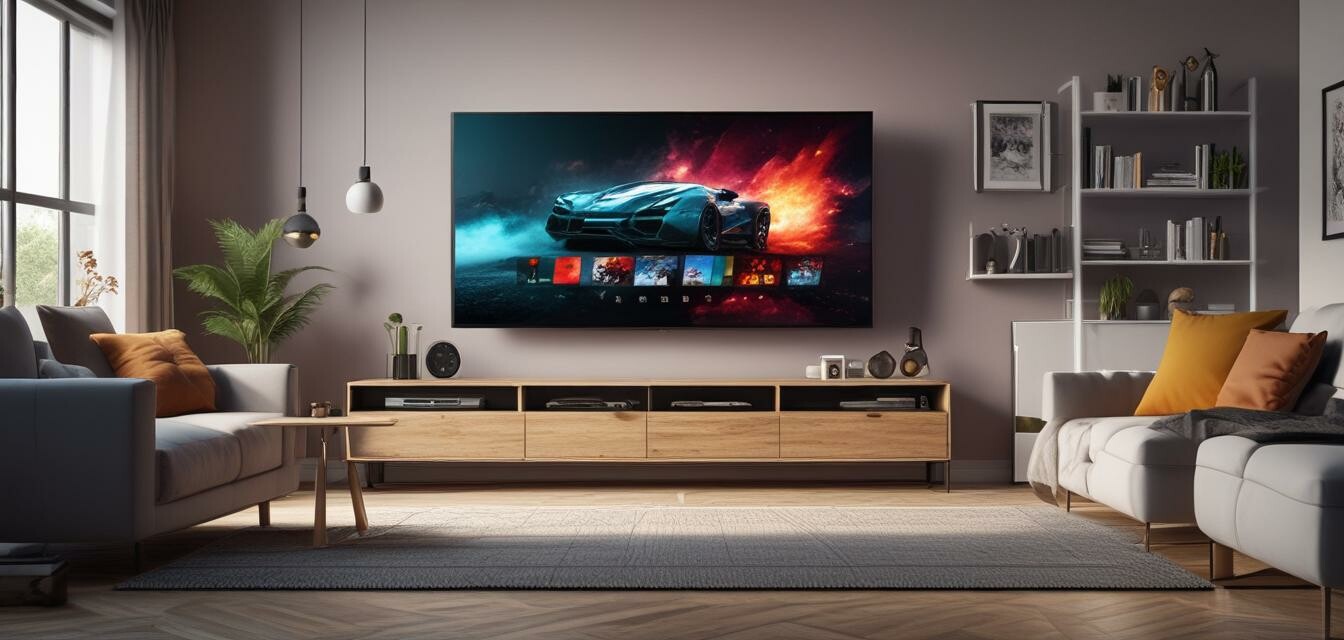
Next Gen Consoles and Their Compatibility with Gaming TVs
Key Takeaways
- The latest gaming consoles have advanced technology that necessitates compatible TV specifications for optimal performance.
- Features such as 4K resolution, HDR, and high refresh rates are crucial for an enhanced gaming experience.
- Understanding input lag and response times can significantly impact gameplay quality.
- Investing in a suitable gaming TV can future-proof your setup as new consoles release.
- Keep an eye on software updates and HDMI specifications to make the most of your gaming setup.
The gaming landscape is evolving rapidly, particularly with the introduction of next-gen consoles. However, the effectiveness of these new consoles is highly dependent on the technology in your gaming TV. This article will explore how modern consoles pair with the latest television technology, ensuring you have the best possible gaming experience.
Understanding next-gen consoles
The arrival of next-gen consoles has brought with it cutting-edge features that enhance your gaming experience. Let’s take a look at some of the main specifications that are relevant to compatibility with gaming TVs.
| Feature | Description |
|---|---|
| 4K Resolution | Next-gen consoles support 4K gaming, providing a stunning visual experience. |
| HDR (High Dynamic Range) | HDR enhances color and contrast, making the graphics more lifelike. |
| Variable Refresh Rate (VRR) | VRR reduces screen tearing and stuttering for smoother gameplay. |
| Low Latency Mode | Reduces input lag, creating a more responsive gaming experience. |
| 120Hz Refresh Rate | Higher refresh rates enhance fluidity in fast-moving scenes. |
The importance of HDMI standards
HDMI standards have advanced significantly to accommodate gaming technologies. Next-gen consoles require HDMI 2.1 to unleash their full potential. This standard offers features that enhance compatibility with gaming TVs. Below is a comparison of several HDMI versions:
| HDMI Version | Bandwidth | Key Features |
|---|---|---|
| HDMI 2.0 | 18 Gbps | 4K at 60Hz, HDR support |
| HDMI 2.1 | 48 Gbps | 4K at 120Hz, 8K at 60Hz, VRR, ALLM |
Choosing the right gaming TV
When searching for the right gaming TV, consider these essential features to ensure optimal performance with your next-gen console:
Tips for selecting a gaming TV
- Look for a TV with native 4K and HDR capabilities.
- Ensure it has HDMI 2.1 ports to support high bandwidth.
- Check for low input lag (ideally less than 10ms).
- Consider models with VRR and ALLM for a seamless gaming experience.
- Read reviews specifically focused on gaming performance.
Game modes and settings
Most modern TVs come equipped with dedicated game modes. These settings optimize your TV’s performance while gaming by minimizing input lag and adjusting the picture settings for the best visual experience. Here’s what to know about these settings:
- Game Mode: Reduces processing time to speed up response times.
- Motion Smoothing: Often better turned off for fast-paced games.
- Color Settings: Calibrate these for maximum detail and vibrancy.
Conclusion
To fully enjoy the immersive experiences that next-gen consoles offer, investing in a compatible gaming TV is crucial. With features such as 4K resolution, HDR support, and HDMI 2.1, you can elevate your gaming to new heights. For further insights, you can explore our 4K Gaming TVs or delve into Buying Guides for detailed recommendations. Stay updated with the latest trends in gaming technology by visiting our News in Gaming Technology category and make informed choices on your gaming setup.
Pros
- Enhanced visual performance with 4K and HDR.
- Future-proofing your gaming setup with HDMI 2.1 support.
- Improved gameplay experience with reduced input lag.
Cons
- Higher investment required for top-end TVs.
- Some features may be underutilized if console is not fully compatible.
